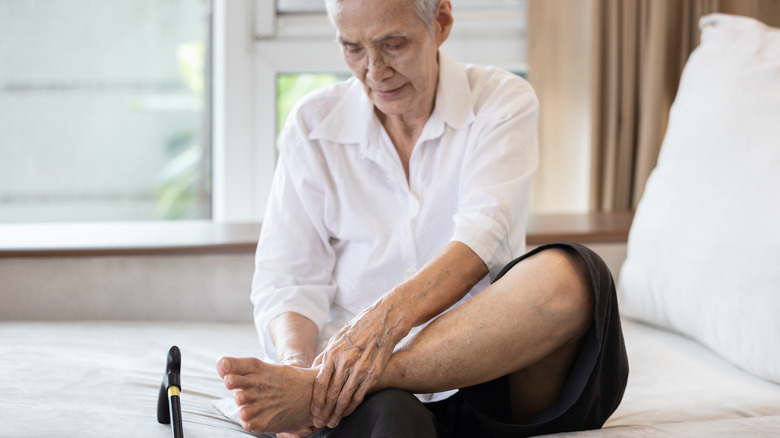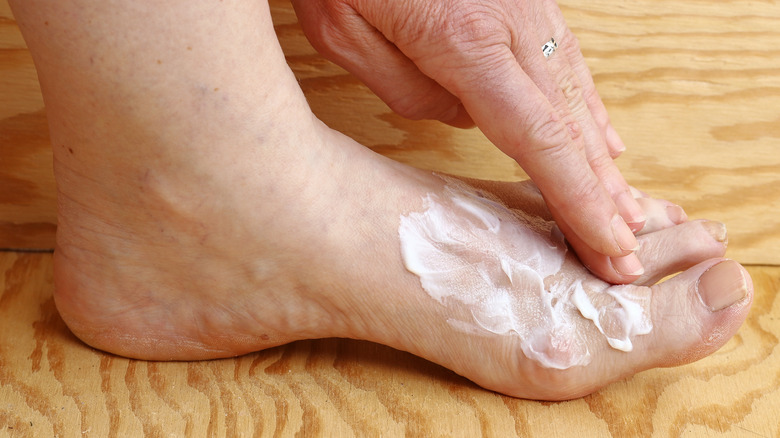The Real Reason Your Feet Hurt More As You Get Older
Our feet deserve a lot of love. They work hard for us, bearing our body weight every day — and often three to four times our body weight if we're jogging or exercising (via U.S. News & World Report). They carry a heavy load, and it's no wonder that, as we age, our feet can start to cry out for relief.
Foot pain in older adults is very common, affecting one in four people over the age of 45. But even though it's common, it's not inevitable. Podiatrist Martin Pressman, assistant clinical professor of orthopedics and rehabilitation at the Yale School of Medicine, told AARP, "People tell me their feet hurt because they're getting older and it's a natural part of aging. That's not true. Pain is a sign of trouble."
To be fair, some factors that contribute to foot pain are totally out of our control. Some changes that happen naturally with age, like slower cell turnover, decreased collagen production, and a reduction in the fatty, cushioning layer that protects the heel and ball of the foot, are inevitable, per Verywell Health. These changes also lead to drier skin that is more susceptible to cracking and infection, and stretched-out ligaments, which can result in flat feet and plantar fasciitis (via WebMD).
Keeping feet clean and moisturized can help
Certain health conditions, including obesity and diabetes, can also lead to foot pain or make existing foot pain worse. A study published in 2017 by the Obesity Research & Clinical Practice journal found that, as body mass index (BMI) increased, so did a person's risk of developing foot pain. Beth Gusenoff, a podiatric surgeon and clinical assistant professor in the department of plastic surgery at the University of Pittsburgh Medical Center, explained to U.S. News & World Report that "The foot can't handle the mechanical load that's being put on it."
Diabetes in older adults often leads to foot pain as well, resulting from poor circulation and neuropathy (via Verywell Health).
Foot pain can be prevented, or at least helped, by giving our feet more of the TLC they deserve. Inspecting the feet regularly for any cuts, cracks, or signs of infection, is important. Keeping good hygiene by washing the feet, drying them thoroughly, and applying moisturizer, can help keep skin healthy and smooth. And working to lose weight and carefully manage diabetes, if needed, can also go a long way towards having happy feet. Dr. Gusenoff adds, "A healthy foot is a catalyst for mobility and a healthy lifestyle. Your feet really are your base of support."


